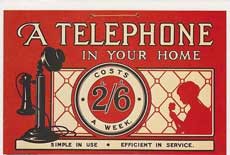 US Telcos and ISPs have started their first wave of legal attacks against the US’s attempts at net neutrality.
US Telcos and ISPs have started their first wave of legal attacks against the US’s attempts at net neutrality.
In the US the telcos have done all they can to make sure that they can charge their customers twice by insisting that the big internet users have to give them more money to use their tubes. The government has said twice that they can’t and asked the FCC to regulate ISPs and telcos which setup such schemes.
On Monday, US Telecom — a group that includes some of the nation’s largest Internet providers — filed suit in Washington, while Alamo Broadband sued the Federal Communications Commission in New Orleans.
US Telecom President Walter McCormick said in a statement that he did not believe the Federal Communications Commission’s move to utility-style regulation invoking Title II authority is legally sustainable.
Alamo alleges that the FCC’s net neutrality rules apply onerous requirements on it.
“Alamo is thus aggrieved by the order and possesses standing to challenge it,” the company’s lawyers wrote in the petition, a copy of which was obtained by The Washington Post.
The challenges were expected, and it looks like any battle will be a show down between a democratically elected government and the bit corporates who really run things in the US.
However the legal challenges are coming much sooner than expected. Many analysts believed that Internet providers would have to wait until the FCC’s rules were officially published in the Federal Register before being eligible to appeal.
In a statement, the FCC called the petitions “premature and subject to dismissal.” It is unclear whether the FCC will be immediately asking for the cases to be thrown out.
Consumer advocacy groups that had pushed hard for the strong new rules said Title II was “the right law” and insisted that the FCC has a strong case.










